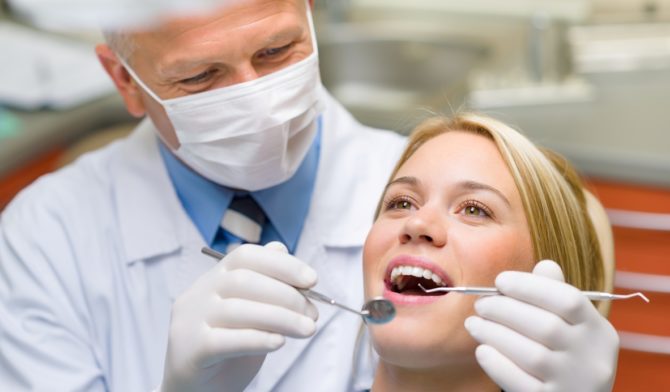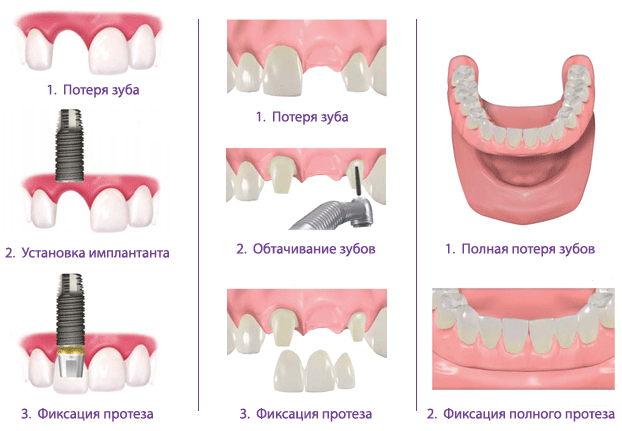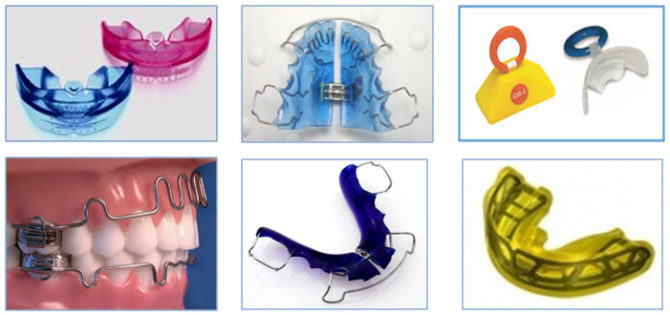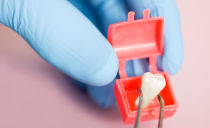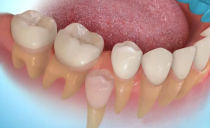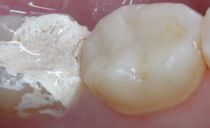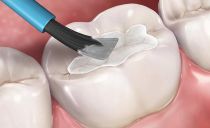Dentist and dentist: what they do, what is the difference
Many mistakenly believe that dentist or dentist treats teeth - It does not matter who exactly, because these are synonyms. But there are differences between the two specializations, and quite substantial.
Content
Dentist and dentist: the difference
Everyone knows the difference between a nurse and a doctor. The dentist-therapist differs approximately the same from the dentist. The first is a certified specialist who has studied at the university and completed an internship, which makes him popular in the modern world. By law, the dentist has the right, depending on specialization, to deal with any problems in the oral cavity. The list of his services includes procedures of any complexity.
Such a specialist as a dentist studied for only three years and received a certificate of completion of secondary education. The range of services rendered to him is not as wide as that of a dentist. This is precisely the main difference between the two specializations.
Dentist Services
A dentist can work in a medical institution and do such simple manipulations:
- assess the condition of the oral cavity;
- treat some gum disease;
- treat caries, but only at non-neglected stages;
- carry out tooth extraction if there are no complications;
- provide a service such as cleaning enamel from stone;
- perform installation of temporary fillings or permanent, but only in small areas;
- to make prints of the dentition to transmit their technique.
If a dentist encounters a problem in the oral cavity that he cannot solve, he is required by law to refer the patient to a dentist with a higher education.
Other dental specialties
Do not think that if you go into the office with the sign "dentist", then he will solve all your problems. The list of diseases is wide, therefore not one, even the most intelligent doctor, is able to treat everything.
Dentists are divided into such specialists:
- Therapist. He is being addressed with common problems.
- Podiatrist who puts dentures.
- Orthodontist - helps with malocclusion.
- Surgeon - performs surgical interventions.
- Periodontist - treats gum disease.
- Children's dentist - leads children under 17 years old.
Children's dentist
In children, as far as we know, teeth are not as many as in adults. Yes, and milk incisors, fangs and molars in people over 14 years old does not happen. Due to the significant differences between the time and constant series, Patients under 17 years old are treated and examined by a pediatric dentist. This is one of the most difficult specialties in dentistry.
 The doctor must not only perfectly know all the features of changes in the teeth in young patients, but also be a good psychologist, because it is not easy to work with children. It is necessary to calm, cheer and encourage the baby and only then proceed directly to work.
The doctor must not only perfectly know all the features of changes in the teeth in young patients, but also be a good psychologist, because it is not easy to work with children. It is necessary to calm, cheer and encourage the baby and only then proceed directly to work.
The dentist does not examine children, although it seems that there are many times fewer orthodontic problems, which means it will be easier to treat them. A pediatric dentist differs from a dentist in that his specialization is more responsible.There is a huge difference in the structure of the teeth of children and adults, and only a certified doctor can correctly cope with the task assigned to him.
Dental surgeon: when radical measures are needed
As you know, surgery involves surgical intervention. This is what the surgeon does in the dental clinic. They come to him if other doctors can no longer help the patient.
The surgeon will once and for all save you from many problems that arise in the oral cavity. This complex specialty requires a lot of attention, great practice and honed skills. A specialist is contacted for a number of problems:
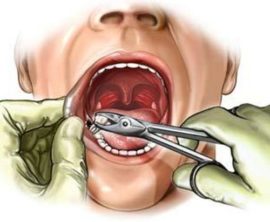 cutting the frenum of the tongue and upper lip;
cutting the frenum of the tongue and upper lip;- tooth extraction - partial or complete;
- diagnosis of syphilis, tuberculosis in the oral cavity;
- tumor treatment;
- treatment of trigeminal diseases;
- plastic deformations of the jaw, restoration of proportions;
- gum plastic;
- treatment of periodontal disease;
- installation of special implants.
The patient rarely comes to the surgeon himself, more often he is referred by other dentists. Often, several doctors carry out treatment at once, usually a periodontist and therapist. After all, before and after surgery, you need to properly lead the patient.
Nowhere without a periodontist
To understand what this specialist is doing, you need to understand what periodontal is. Periodontium - soft tissue near the teeth, and if simpler - the gums. Teeth and gums are one system. There can be no healthy incisors, fangs, molars and diseased gums or vice versa.
Periodontist treats:
- gingivitis;
- stomatitis;
- periodontitis;
- periodontal disease.
Most often, periodontal disease occurs due to the introduction of infection between hard tissues (teeth) and soft (gums).
The Importance of an Orthopedic Dentist
This doctor is also called a prosthetist, because the essence of his specialty is prosthetics of the patient’s teeth. They get to him only after a full examination by a dentist, since he will be able to work with prostheses and do his work only when sanitation is already carried out - otherwise the risk of inflammation is too high.
Today orthopedists are the most sought after specialists. They are engaged in the setting of crowns, pins, bridges, all kinds of implants. It is rarely possible to find a person over thirty years old who would never go to this doctor.
Dentist-therapist - the broadest specialty
The therapist deals with general problems:
- treatment of caries, periodontitis, pulpitis;
- patient consultations;
- disease prevention;
- mouth preparation before prosthetics.
It is to this specialist that there is always a line to “check out”. A dentist’s appointment is somewhat similar to a dentist’s appointment, but it has a difference: the second doctor does not treat or examine pulpitis, periodontitis and other infectious and inflammatory diseases.
The therapist has the right not only to the initial consultation, but also to the treatment of patients. A dentist differs from a dentist in that he cannot consult patients according to their disease, his duty is to refer him to other specialists.
Orthodontist will correct nature
This doctor corrects bite using braces, plates or mouth guards. Due to improper positioning, teeth can wear out, crumble, it is much more difficult for a person to carry out hygienic measures, chew food.
Orthodontist corrects congenital or hereditary abnormalitiesthat interfere with a full life, for example, the gap between the front incisors, irregular shape, location and many others. In the modern world, the aesthetic side is not in the last place - we can say that the orthodontist makes a “beautiful smile”. It is worth remembering that the treatment at this doctor can take more than one year.
How to save on dental services
It is known that adjusting a smile is now very expensive, not everyone can afford such a luxury.A toothache is one of the most powerful and it is impossible to endure. Special high cost is noted in the capital of Russia - Moscow. However, according to the law under Art. 41 of the Constitution of the Russian Federation, medical care should be provided free of charge. Of course, this statement applies to government clinics.
conclusions
There are a lot of specialists in dentistry, and the activities of each of them are different. It is important to remember that serious problems with oral health and trips to dental clinics can be avoided if elementary rules are observed:
- brush your teeth twice a day;
- visit the dentist once a year, even if there is no reason for this;
- Do not delay if gums become sensitive or inflamed.
By observing these conditions, you will protect yourself from future problems. Do not be afraid of doctors, many diseases begin completely asymptomatically, and only a specialist can determine the threat in time.

